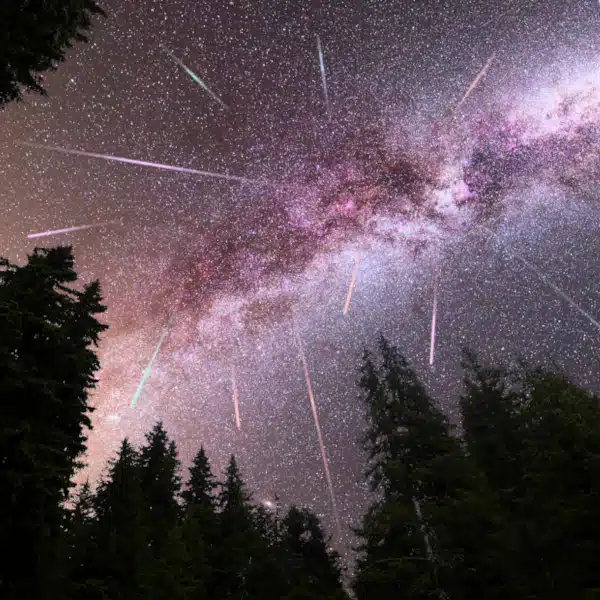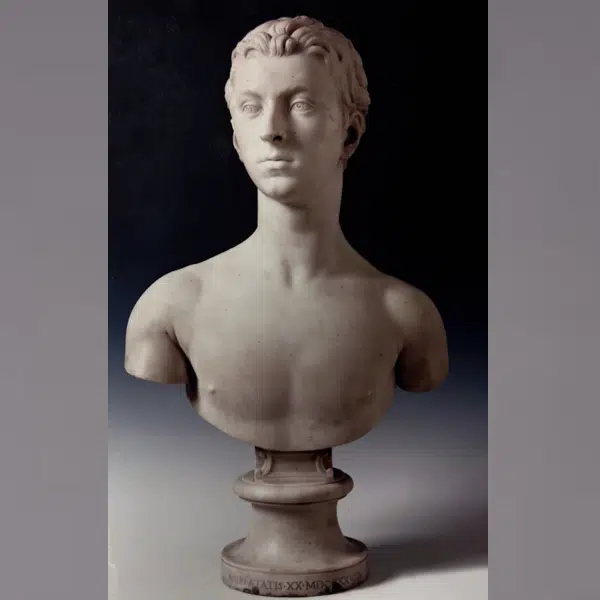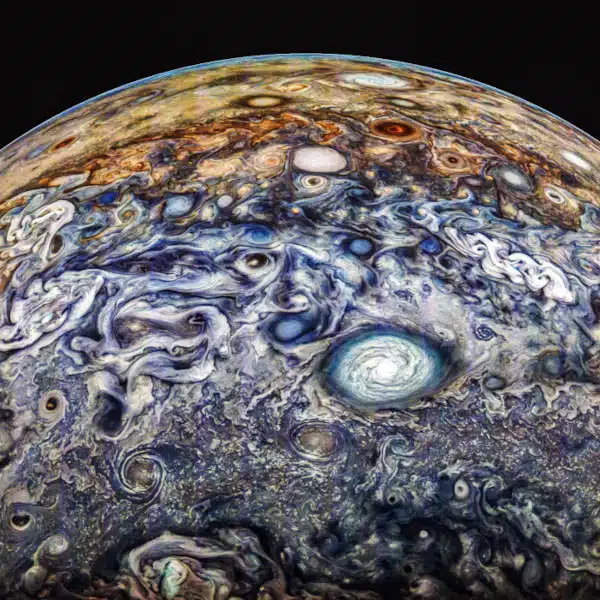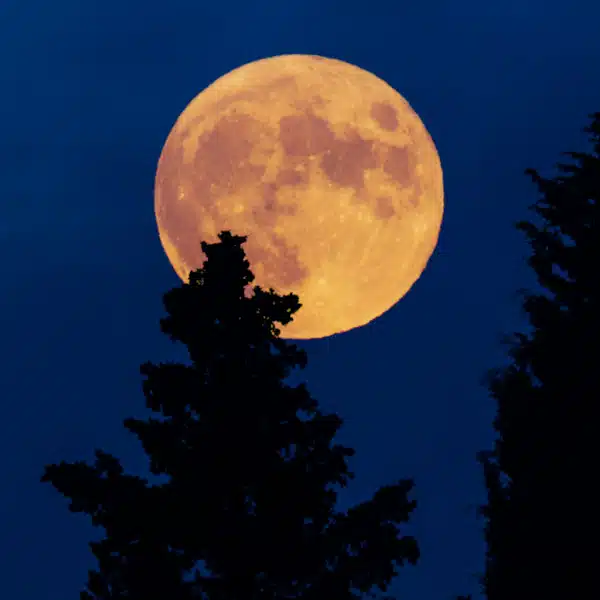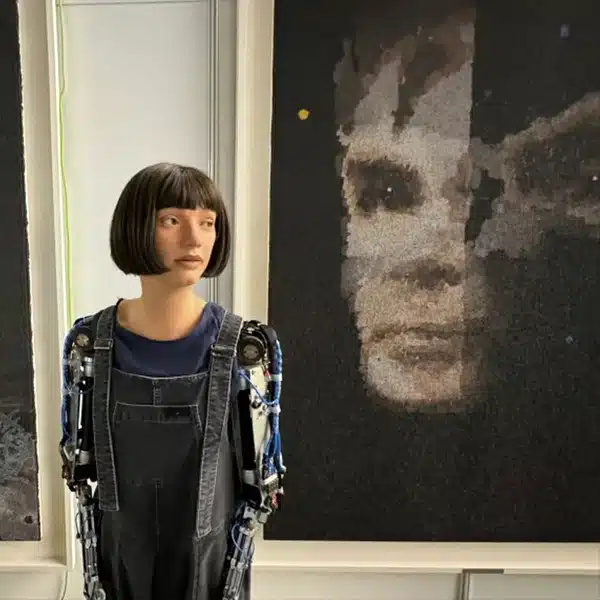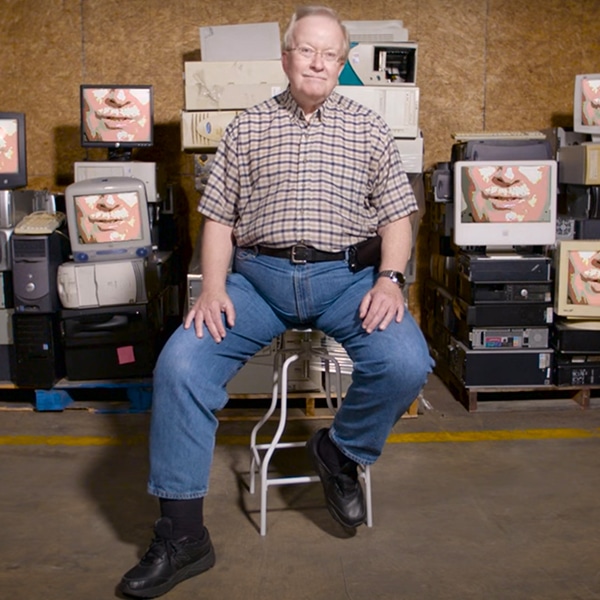
Command Module pilot Michael Collins practices in the CM simulator on June 19, 1969, at Kennedy Space Center.
On April 28, after a long battle with cancer, NASA astronaut Michael Collins passed away at age 90. Best known for his work on the historic Apollo 11 mission, where he was the command module pilot, Collins spent over 20 hours alone in lunar orbit while Neil Armstrong and Buzz Aldrin walked on the moon. As a fundamental piece of Apollo 11's success, Collins holds an important place in the history of space travel. In fact, Apollo 11 wasn't even Collins' first time in orbit.
The man who once said, “Exploration is not a choice really—it’s an imperative,” first launched into outer space in 1966 as the pilot of Gemini 10. Collins' life was colorful from the beginning—from his birth in Rome to the many places he traveled as the son of a career U.S. Army officer. Following in his father's footsteps, Collins also made a career in the military. After graduating from West Point Military Academy, he went on to become a pilot in the Air Force.
Inspired by John Glenn's Mercury-Atlas 6 flight in 1962, Collins applied to NASA. This defining decision changed his life and put him on a path toward history. He performed two spacewalks on Gemini 10, becoming just the fourth person to leave a spacecraft and work in a space vacuum. But it's his work with Apollo 11 that cemented his place in history.
Interestingly, it was an injury that saw him get reassigned to Apollo 11. Collins was originally training with the Apollo 9 crew when he needed surgery for a herniated disk that put him in a neck brace for three months. As a result, he was placed with the Apollo 11 crew and the rest is history.
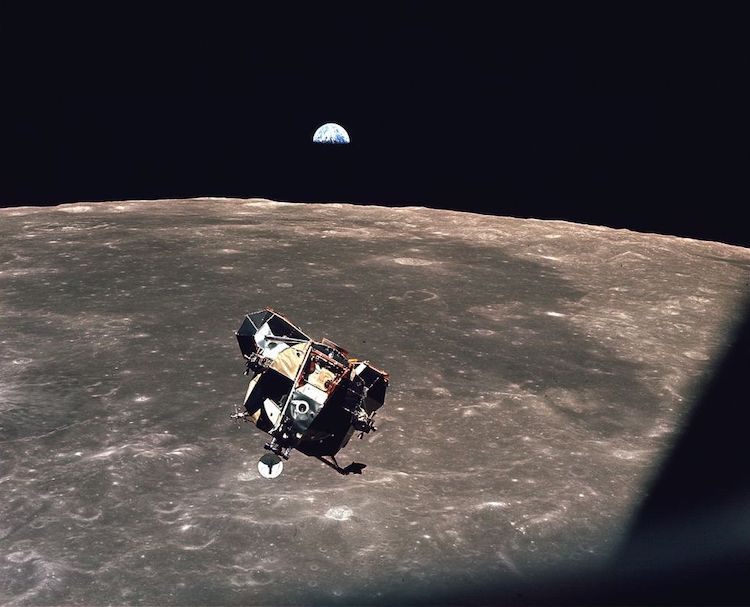
Photo of the Eagle launcher and Earth taken by Michael Collins from the Columbia module during the Apollo 11 mission.
Collins' job during the mission was to ensure that the lunar module had landed, perform system checks, and communicate with Mission Control. A NASA commentator at Mission Control described Collins' work as lonely, stating, “Not since Adam has any human known such solitude as Mike Collins is experiencing during this 47 minutes of each lunar revolution when he's behind the moon with no one to talk to except his tape recorder aboard Columbia.”
However, this is far from what Collins experienced. “That's baloney,” said Collins in 2019. “You put some Samoan on his little canoe out in the middle of the Pacific Ocean at night and he doesn't really know where he's going, he doesn't know how to get there. He can see the stars, they're his only friend out there, and he's not talking to anybody. That guy is lonely. I didn't experience that kind of loneliness. Columbia was a nice, secure, safe, commodious place. I had hot coffee, I had music if I wanted it, I had nice views out the window.”
And while some people wondered if he felt frustrated getting so close to the moon without being able to walk on it, Collins was happy with his contribution to getting America to the moon. “I know that I would be a liar or a fool if I said that I have the best of the three Apollo 11 seats, but I can say with truth and equanimity that I am perfectly satisfied with the one I have,” Collins wrote in his 1974 autobiography. “This venture has been structured for three men, and I consider my third to be as necessary as either of the other two.”

(From left) Buzz Aldrin, Michael Collins, and Neil Armstrong with President Barack Obama in 2009.
In a statement from the White House, President Joe Biden commended Collins for his role in the mission. “Many remember him as the astronaut who was by himself, orbiting the Moon as Buzz Aldrin and Neil Armstrong walked on the lunar surface. He may not have received equal glory, but he was an equal partner, reminding our nation about the importance of collaboration in service of great goals. From his vantage point high above the Earth, he reminded us of the fragility of our own planet and called on us to care for it like the treasure it is.”
After leaving NASA in 1970, he went on to work as the Director of the National Air and Space Museum. It was a position he held for eight years. Among his accolades are the Presidential Medal of Freedom given to him in 1969 by President Nixon and the New Frontier Congressional Gold Medal in 2011. This is the highest civilian award in the United States.
NASA has a special website dedicated to Collins' contributions and said the following: “NASA mourns the loss of this accomplished pilot and astronaut, a friend of all who seek to push the envelope of human potential. Whether his work was behind the scenes or on full view, his legacy will always be as one of the leaders who took America's first steps into the cosmos. And his spirit will go with us as we venture toward farther horizons.”
Buzz Aldrin, who is now the only living member of the Apollo 11 crew, tweeted his own tribute: “Dear Mike, Wherever you have been or will be, you will always have the Fire to Carry us deftly to new heights and to the future. We will miss you. May you Rest In Peace.”
NASA astronaut Michael Collins has died at age 90 after a long battle with cancer.
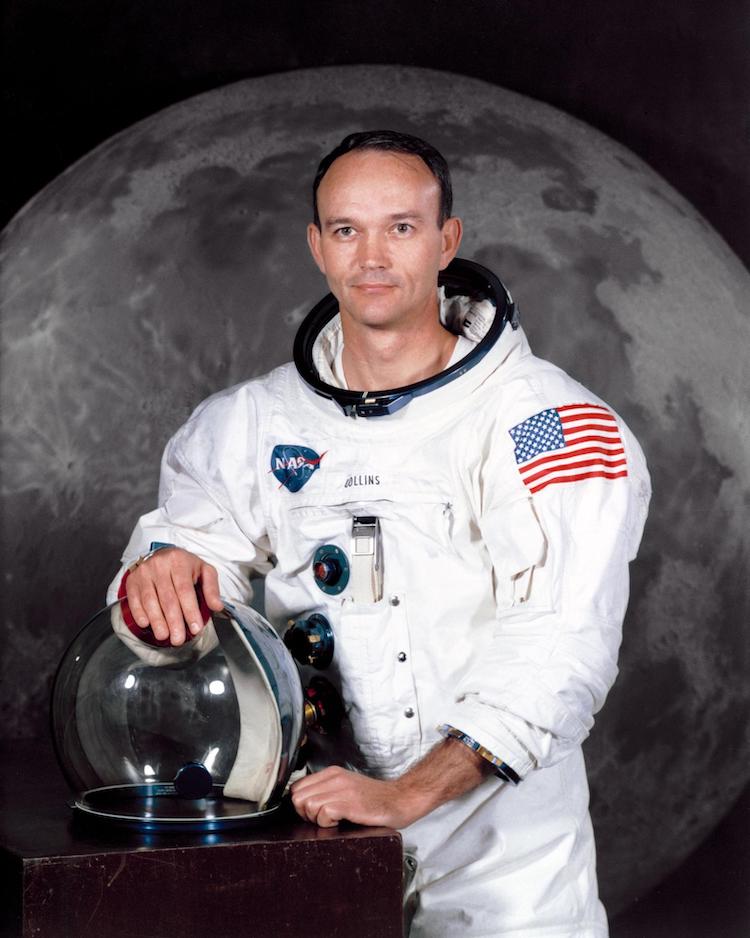
Collins first went to outer space in 1966 as the pilot of Gemini 10.
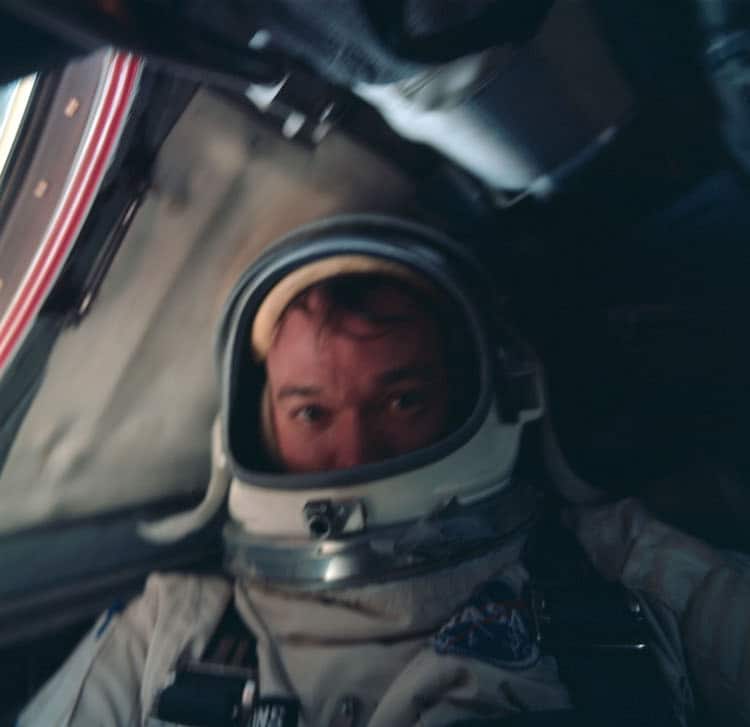
Collins aboard Gemini 10.
But he's best known for his work as part of the historic Apollo 11 mission with Buzz Aldrin and Neil Armstrong.
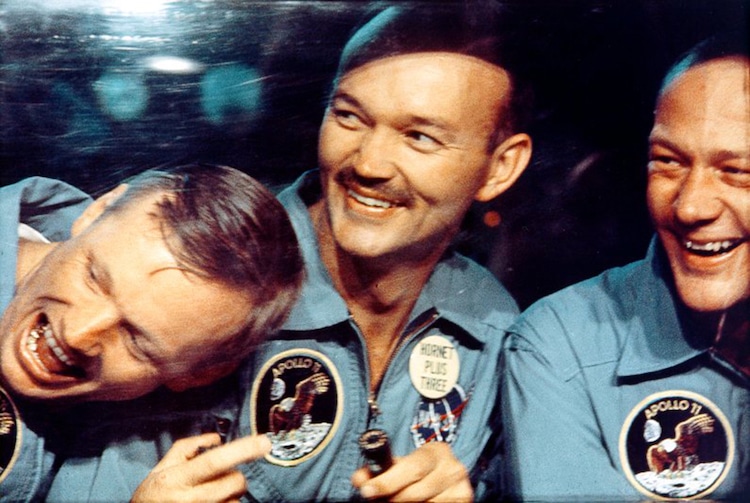
Apollo 11 Crew in the Mobile Quarantine Facility after splashing down in the Pacific Ocean upon return from space.
Collins and the rest of the crew were celebrated as heroes after their successful mission to the moon.

President Richard Nixon visiting the Apollo 11 crew aboard the USS Hornet.

Parade in New York City welcoming home the Apollo 11 crew.
Throughout his life, Collins continued to be a champion for NASA and space exploration.

On the 50th anniversary of Apollo 11's launch to the moon in 2019, Michael Collins speaks to launch team members from Apollo 11 and the current launch team for Artemis 1.
Watch NASA's tribute to Michael Collins.
All images via NASA.
Related Articles:
10 Creative Books to Celebrate the 50th Anniversary of the Moon Landing
30+ Historic Photos Celebrating the 50th Anniversary of Apollo 11 Moon Landing
More Than 8,400 Never-Before-Seen Photos from NASA’s Apollo Moon Landings
RIP Katherine Johnson: Paying Tribute to the Pioneering NASA “Human Computer”













































































